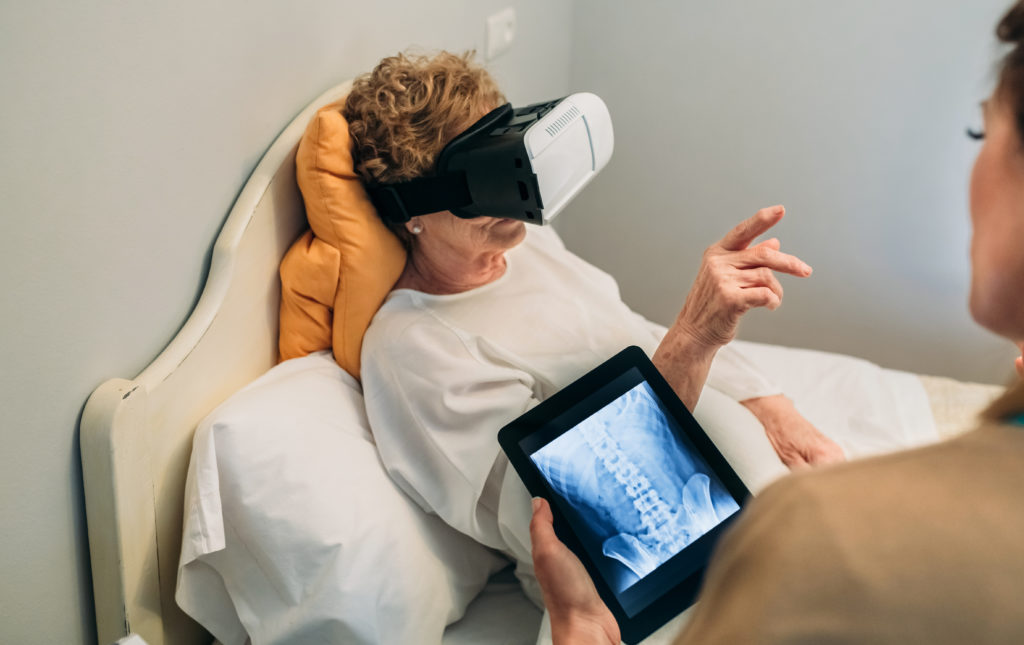The medical field is experiencing rapid transformation due to the growing influence of artificial intelligence technology. AI in healthcare extends beyond laboratory research and theoretical concepts as it now functions in actual clinical environments to aid healthcare professionals while enhancing patient results and reshaping the way care is delivered. AI systems that process huge data sets and detect overlooked patterns are establishing a new operational benchmark within healthcare.
Smarter Diagnoses Through AI-Powered Technology
The field of diagnostics represents one of the strongest ways artificial intelligence is transforming healthcare practices. Algorithms developed through machine learning using vast medical records and images enable early and more precise disease detection. AI in healthcare enables radiologists and specialists to achieve faster and more accurate diagnostic decisions, like detecting breast cancer through mammograms and identifying early stroke signs in brain scans. Patients experience improved health results through AI technology, which allows for essential early medical interventions.
Personalised Treatment for Better Patient Outcomes
AI technology in healthcare is transforming the approach towards designing medical treatments. While traditional healthcare uses standard treatment protocols, AI enables the development of personalised medical approaches. AI utilises genetic data alongside lifestyle habits and historical treatment records to assist clinicians in creating personalised treatment plans for patients. Customised treatment plans improve success rates while minimising potential side effects and complications.
Predictive Analytics and Preventive Healthcare
AI in healthcare plays a vital role by identifying potential health risks before they become severe problems. Predictive analytics enables AI to detect early indicators of chronic diseases such as heart disease or diabetes. It helps healthcare providers receive data-driven insights. This allows them to intervene early to prevent symptom escalation, thereby saving lives and cutting long-term healthcare costs. AI enables healthcare to move from after-the-fact treatment to early prevention and care.
Improving Efficiency in Healthcare Operations
AI in healthcare extends its transformative power beyond clinical care to enhance operational efficiency in healthcare settings. Administrative tasks such as appointment scheduling, billing, and managing patient records are being streamlined through automation. By this medical staff can dedicate more time to patient interaction since administrative paperwork demands have decreased. Healthcare teams facing heavy workloads find relief as AI virtual assistants take on documentation tasks along with patient communication and follow-up support.
Remote Monitoring and Virtual Care at Scale
Artificial intelligence technology has elevated remote care to unprecedented levels of effectiveness. Real-time monitoring of patients using smart devices and health tracking apps is achieved through AI. It tracks vital signs and medication adherence while identifying any irregularities. These technologies enable doctors to monitor patients remotely through their medical devices, with a particular emphasis on those suffering from chronic diseases or mobility restrictions. Patients will now be able to receive care without having to make regular visits to healthcare facilities.
Navigating Ethical Concerns and Data Privacy
The deeper integration of AI in healthcare systems generates important questions regarding patient privacy and the ethical and accountable use of technology. Strict security protocols must be implemented when managing sensitive patient data to ensure confidentiality protection. The transparency of AI decision-making processes requires a clear understanding and regulatory measures. To ensure artificial intelligence is used responsibly and ethically in healthcare, we need trust between patients and doctors and AI technologies.
A Future Where AI and Human Expertise Work Together
The future of health care lies in machines providing intelligent tools to strengthen human expertise instead of replacing people. The role of AI in healthcare is to assist professionals through data management and analysis functions to provide recommendations that enhance patient outcomes. Artificial intelligence serves as an effective healthcare ally that delivers compassionate care in combination with high accuracy when it is deployed thoughtfully. Through this partnership, we will reach a future where diagnoses happen faster while treatment delivery becomes smarter and healthcare becomes more accessible than it has ever been.
